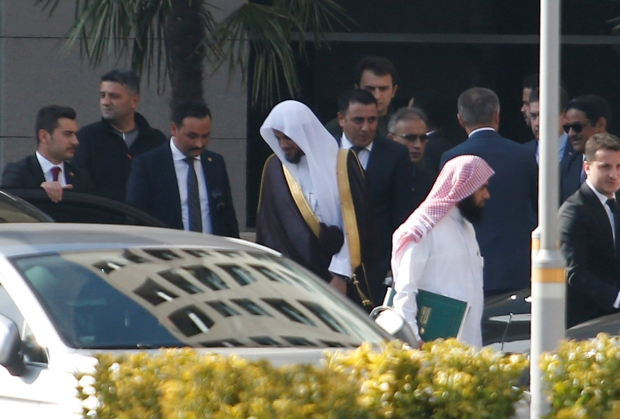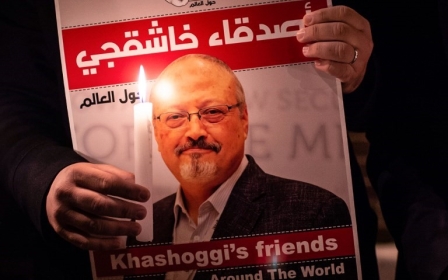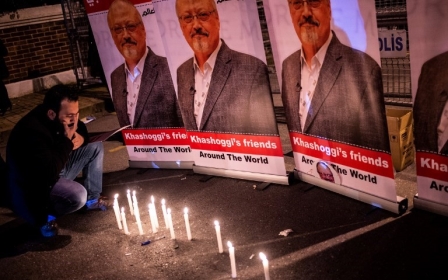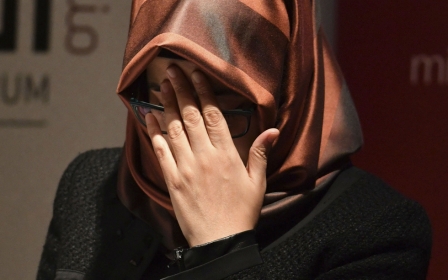Khashoggi suffocated soon after entering Saudi consulate: Istanbul prosecutor
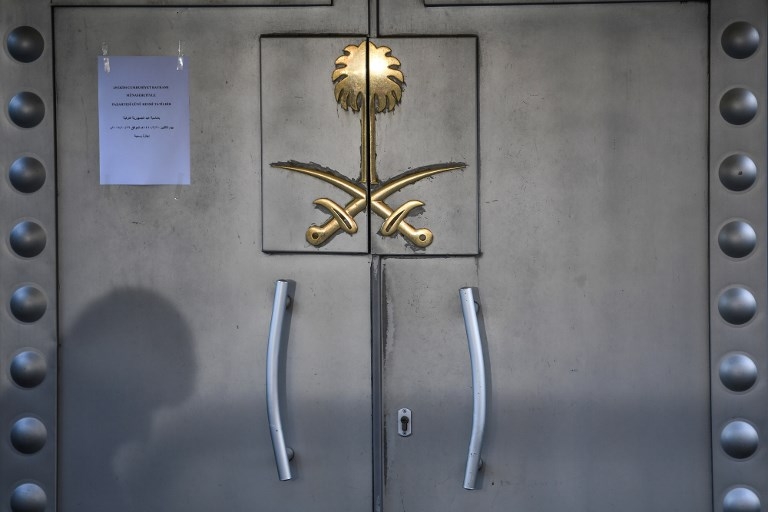
Jamal Khashoggi was suffocated to death the moment he entered the Saudi consulate in Istanbul, the city’s chief prosecutor said on Wednesday, adding that it was a premeditated murder.
The journalist’s body was dismembered and his remains were destroyed, Irfan Fidan said in a statement.
"In accordance with plans made in advance, the victim, Jamal Khashoggi, was strangled to death immediately after entering the consulate-general of Saudi Arabia in Istanbul on 2 October, 2018 for marriage formalities," he said.
"The victim's body was dismembered and destroyed following his death by suffocation - again, in line with advance plans," it added.
The victim's body was dismembered and destroyed following his death by suffocation - again, in line with advance plans
- Istanbul prosecutor statement
The statement follows a series of meetings between Fidan and the Saudi chief prosecutor Saud al-Mujeb.
After three days in Istanbul, Mujeb and his team left for Saudi Arabia. "Despite our well-intentioned efforts to reveal the truth, no concrete results have come out of those meetings," Fidan said.
A source close to the investigation told Middle East Eye the Saudis had been totally uncooperative. Fidan had felt humiliated by them, according to the source.
Mujeb made a bad impression in Turkey. He was caught on camera laughing and joking with his colleagues at the Swissotel, a luxury hotel overlooking the Bosphorus.
According to Fidan's statement, the Turkish prosecutor demanded his Saudi counterpart reveal the identity of the "local collaborator" that Riyadh has said was responsible for disposing of the body.
Now, however, Mujeb is denying the existance of such a person, the statement said.
This would appear just the latest time the Saudis have changed their story over Khashoggi's death. First, they insisted he left the consulate unharmed, then acknowleged he died, later admitting he was murdered.
Nuclear talks
Turkish President Recep Tayyip Erdogan said on Tuesday that the Saudis were protecting the person responsible for Khashoggi's murder, adding that Turkey would not abandon its investigation.
"A game to save somebody lies beneath this," Erdogan told reporters following a speech in parliament. "We won't leave Khashoggi's murder behind."
So far, the kingdom has placed the blame for Khashoggi's murder on two of Crown Prince Mohammed bin Salman's closest allies, deputy intelligence chief Ahmed al-Assiri and top aide Saoud al-Qahtani, who was once dubbed "Saudi Arabia's Steve Bannon". Both men have been fired.
Many observers, however, believe the 33-year-old heir to the Saudi throne is behind the murder, despite his claims to the contrary.
The news comes as a group of five Republican senators asked US President Donald Trump to suspend upcoming nuclear talks with Saudi Arabia.
"The ongoing revelations about the murder of Saudi journalist Jamal Khashoggi, as well as certain Saudi actions related to Yemen and Lebanon, have raised further serious concerns about the transparency, accountability, and judgment of current decision-makers in Saudi Arabia," the group, led by former presidential candidate Marco Rubio, wrote in a letter to the president.
"We therefore request that you suspend any related negotiations for a US-Saudi civil nuclear agreement for the foreseeable future."
The group said they would use an obscure provision in the Atomic Energy Act to block US-Saudi nuclear agreements if the talks were not called off.
Middle East Eye propose une couverture et une analyse indépendantes et incomparables du Moyen-Orient, de l’Afrique du Nord et d’autres régions du monde. Pour en savoir plus sur la reprise de ce contenu et les frais qui s’appliquent, veuillez remplir ce formulaire [en anglais]. Pour en savoir plus sur MEE, cliquez ici [en anglais].


